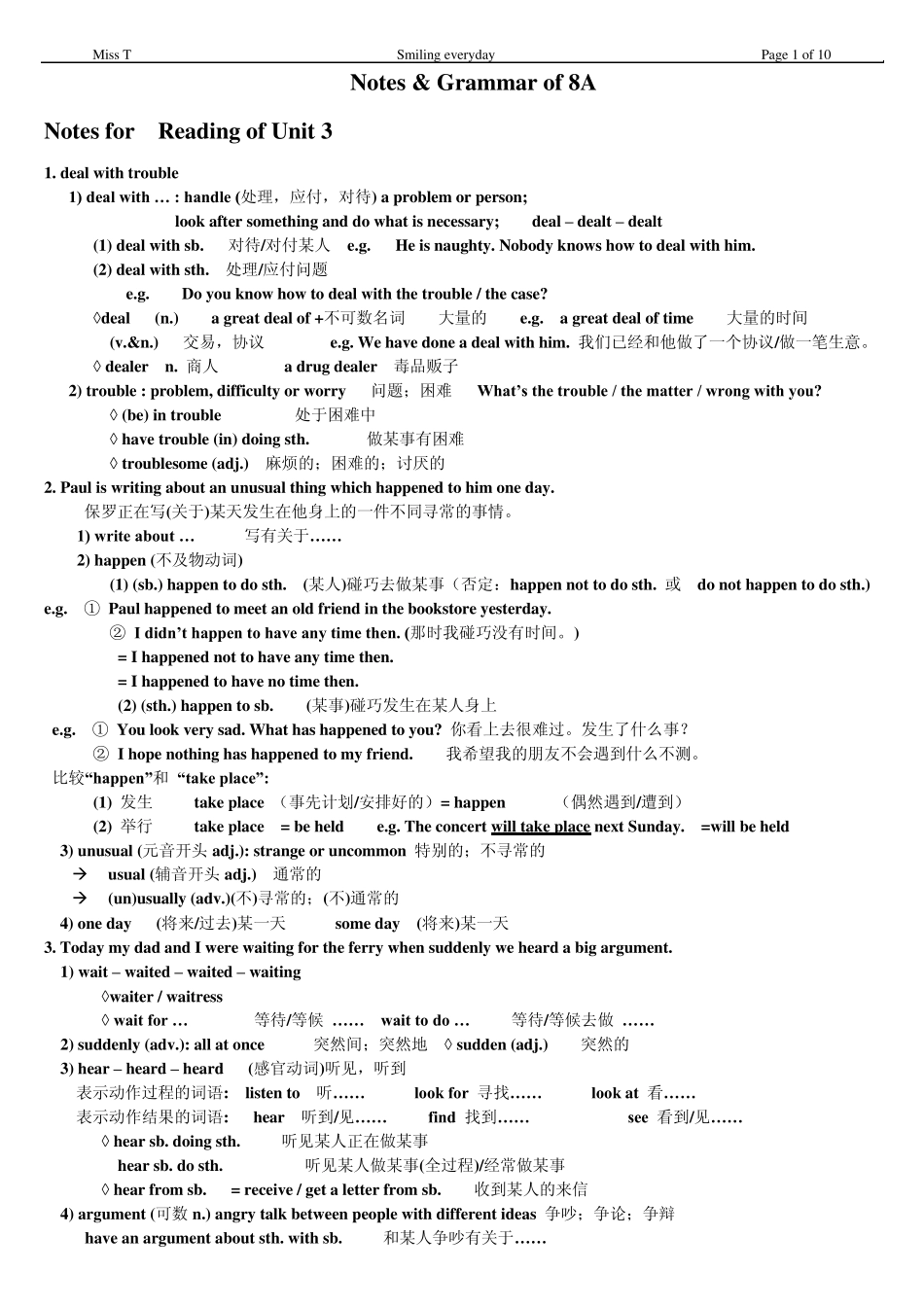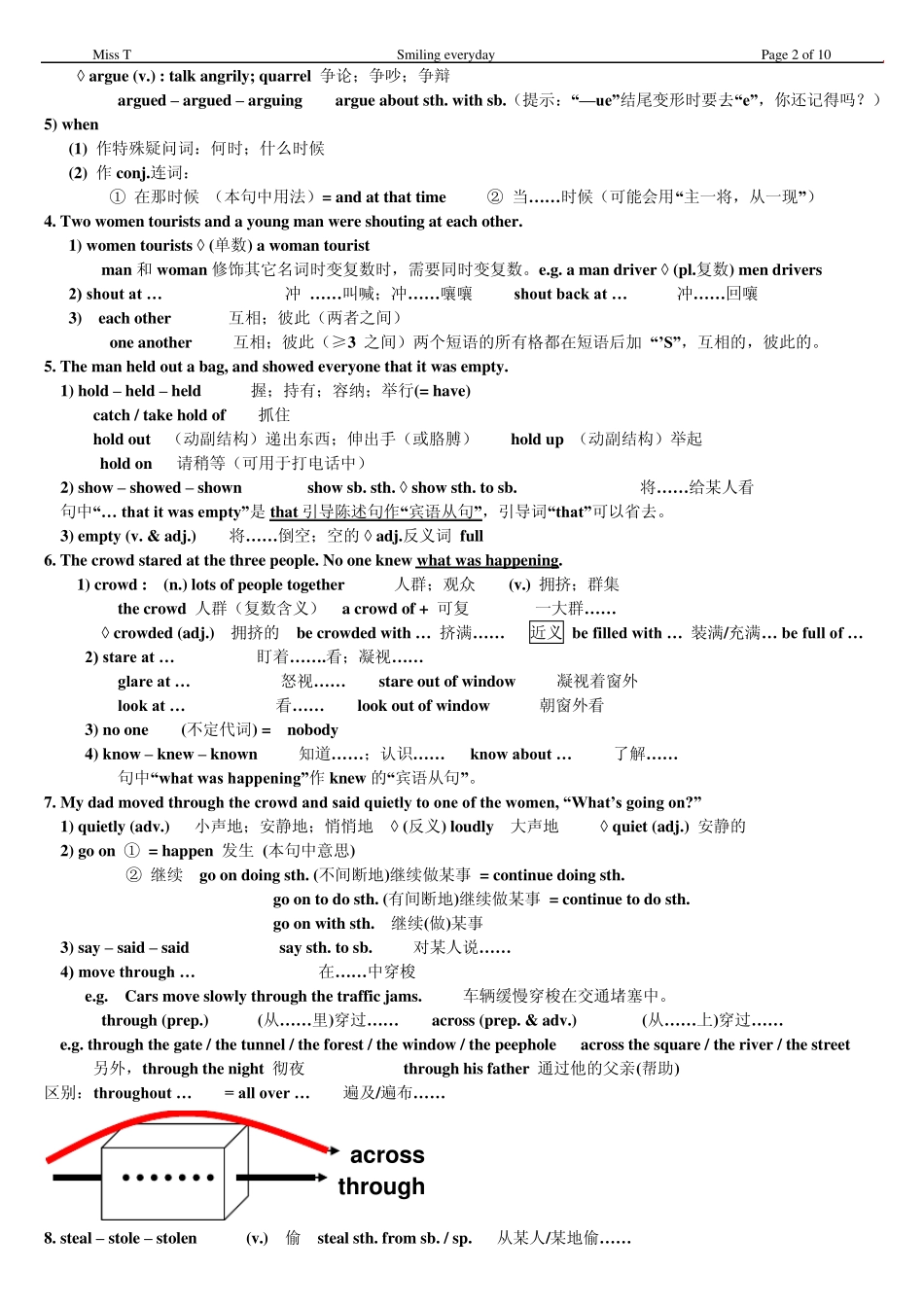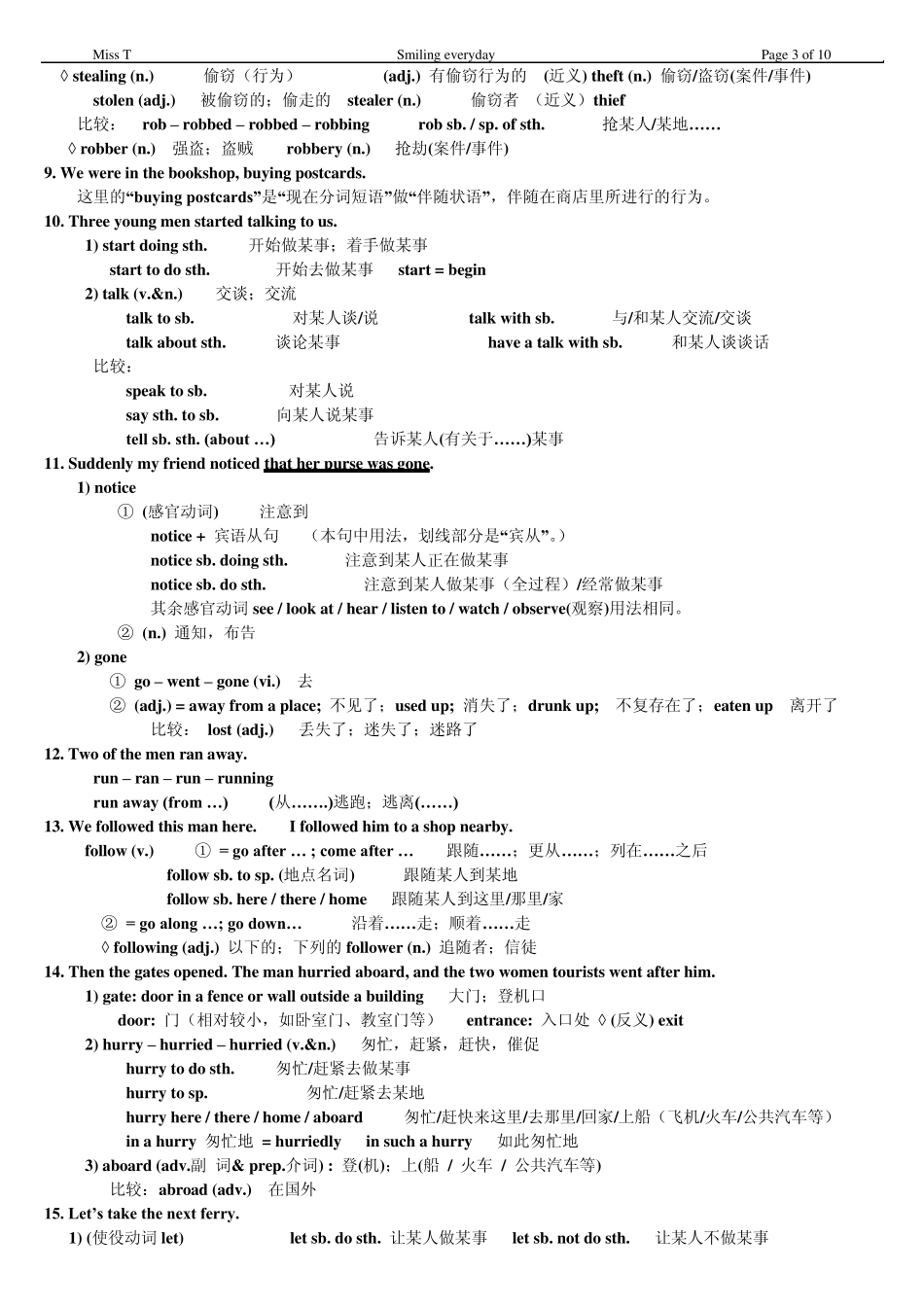Miss T Smiling everyday Page 1 of 10 Notes & Grammar of 8A Notes for Reading of Unit 3 1. deal with trouble 1) deal with … : handle (处理,应付,对待) a problem or person; look after something and do what is necessary; deal – dealt – dealt (1) deal with sb. 对待/对付某人 e.g. He is naughty. Nobody knows how to deal with him. (2) deal with sth. 处理/应付问题 e.g. Do you know how to deal with the trouble / the case? deal (n.) a great deal of +不可数名词 大量的 e.g. a great deal of time 大量的时间 (v.&n.) 交易,协议 e.g. We have done a deal with him. 我们已经和他做了一个协议/做一笔生意。 dealer n. 商人 a drug dealer 毒品贩子 2) trouble : problem, difficulty or worry 问题;困难 What’s the trouble / the matter / wrong with you? (be) in trouble 处于困难中 have trouble (in) doing sth. 做某事有困难 troublesome (adj.) 麻烦的;困难的;讨厌的 2. Paul is writing about an unusual thing which happened to him one day. 保罗正在写(关于)某天发生在他身上的一件不同寻常的事情。 1) write about … 写有关于…… 2) happen (不及物动词) (1) (sb.) happen to do sth. (某人)碰巧去做某事(否定:happen not to do sth. 或 do not happen to do sth.) e.g. ① Paul happened to meet an old friend in the bookstore yesterday. ② I didn’t happen to have any time then. (那时我碰巧没有时间。) = I happened not to have any time then. = I happened to have no time then. (2) (sth.) happen to sb. (某事)碰巧发生在某人身上 e.g. ① You look very sad. What has happened to you? 你看上去很难过。发生了什么事? ② I hope nothing has happened to my friend. 我希望我的朋友不会遇到什么不测。 比较―happen‖和 ―take place‖: (1) 发生 take place (事先计划/安排好的)= happen (偶然遇到/遭到) (2) 举行 take place = be held e.g. The concer...


